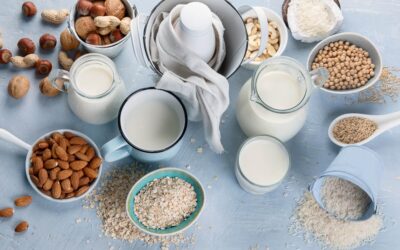Could chronic fatigue be exacerbated by cows’ milk? A new prospective study has identified a strong link. Conducted by the Chronic Fatigue Program at Johns Hopkins University, the 2016 study, “Cow’s Milk Protein Intolerance in Adolescents and Young Adults with Chronic Fatigue Syndrome” analyzed a small group of teenagers who exhibited both a cows’ milk intolerance and Chronic Fatigue Syndrome. After a two-week trial, researchers concluded that dairy intolerance is common among young people with chronic fatigue and eliminating dairy is a simple way to assuage symptoms. While additional research is needed, this finding serves as a word of caution to parents giving their children chocolate milk after a game or a glass of two-percent at dinner. We’re told cows’ milk contains calcium and protein—but at what cost?
This research served as a subset of a larger study on Chronic Fatigue Syndrome (CFS). Seventeen individuals represented a population that demonstrated signs of dairy intolerance and CFS. During the two-week study, the participants eliminated cows’ milk from their diets. While the pool of participants was small, the results were significant.
Eighty-two percent of the teens reported improvement in early satiety (a common symptom of CFS), and one hundred percent reported availed or reduced abdominal pain and aphthous ulcers. Following this two-week break with dairy, the participants were given cows’ milk to discover if their symptoms returned. Researchers found that these gastrointestinal symptoms did reoccur with the reintroduction of dairy.
It is not a surprise to find such a significant reduction of symptoms—dairy can wage an internal war on every body—particularly those who are lactose intolerant. These individuals may suffer from a host of uncomfortable symptoms ranging in severity including gas, bloating, nausea, diarrhea, abdominal cramping, and more. However, once a person removes all dairy from their diet, they remove the root cause of these symptoms and experience relief. If dairy also contributes to symptoms of CFS, as this study suggests, the logical conclusion is to simply leave it out and spare oneself these debilitating ailments.
Dairy intolerant or not, this study gives us all a reason to reconsider the consumption of dairy. We knew it caused gastrointestinal distress, but this link between CFS and dairy shows that we really don’t know the full extent of what dairy can do to our bodies. Cows’ milk contains a plethora of proteins and sugars that are foreign to the human body, and while an extensive amount of research has been conducted to promote the benefits of dairy, not enough research has been done to uncover the hazards. In short, dairy could be negatively affecting our bodies in ways we may not know.
In a consumer-driven world where we don’t know exactly what is going into our bodies and how it may be affecting us, it is critical to be in tune with how we feel. If you’re not feeling one-hundred percent—even if that takes the form of a mild afternoon slump or a bit of bloat—try ditching dairy. Cows’ milk affects every body to a certain extent—all are susceptible to the natural bovine hormones that are linked to certain cancers; the trans fats and cholesterol that constrict arteries; the inflammation that impedes recovery—but some may experience health repercussions beyond this. You’ll never know unless you try, and there is nothing to lose. Your chronic symptoms may be calmed by something as simple as making the switch.








